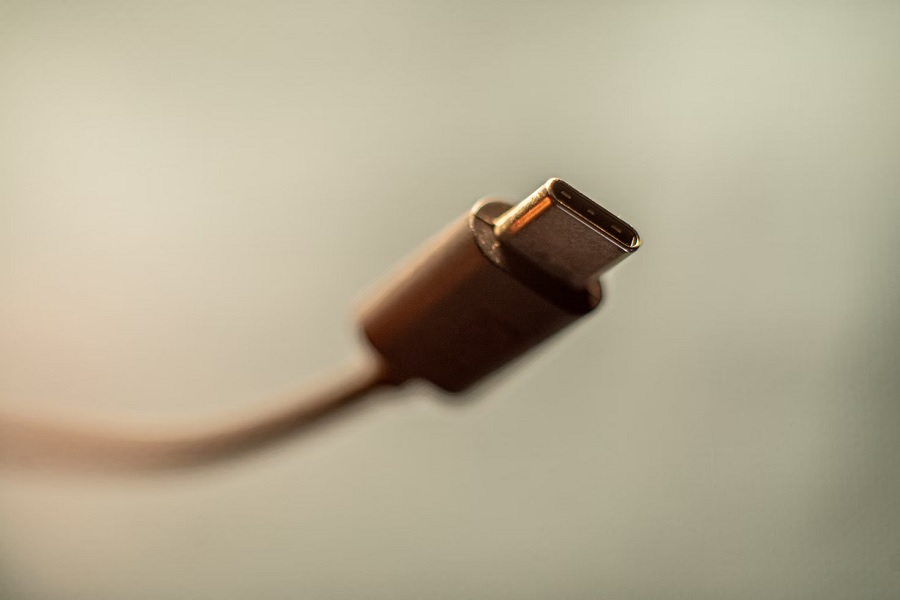The European Commission, the European Union’s executive arm, has forwarded a proposal that would make the use of USB-C port a requirement on all devices sold in the region. If legislated, Apple is one of the companies likely to be affected the most by this change. However, the iPhone maker might still be able to avoid it without actually replacing its Lightning port with USB-C.
The proposed legislation seeks to revise the EU’s Radio Equipment Directive and would mandate the availability of USB-C ports on phones, tablets, computers, headphones, speakers, and portable gaming consoles. The legislation also aims to unbundle charger sales from device sales, which could mean consumers may purchase new devices without a new charger.
Most Android phone makers are already using USB-C ports for charging, making Apple one of the likely companies to be affected the most by this potential change. However, the Commission told The Verge that the proposal only applies to wired charging. It means devices that can only be charged wirelessly would not be required to have a USB-C port to enter the European market.
If Apple would insist on not using USB-C ports on future iPhones, the tech giant may not be entirely affected by the proposed legislation. It is then worth noting that a portless iPhone has been mentioned in the rumor mill for some time now.
The recently launched iPhone 13 series still uses Apple’s Lightning port for charging. But this is the second year that the company has added MagSafe wireless charging as a standard feature on all new iPhone models. While Apple is mum on the possibility of a portless iPhone, charging iPhones without wired cables is no longer unfathomable.
Meanwhile, the proposal still needs to pass a vote in the European Parliament to be fully enacted into law. When the Parliament adopts the Commission’s proposal, the EU will give manufacturers a 24-month transition period to adapt to the mandatory USB-C ports.
The proposed legislation has been in the works for years, and Apple was one of the companies to submit feedback about it in 2019. “Regulations that would drive conformity across the type of connector built into all smartphones freeze innovation rather than encourage it. Such proposals are bad for the environment and unnecessarily disruptive for customers,” the iPhone maker said at the time.
Photo by Marcus Urbenz on Unsplash



 Sam Altman Reaffirms OpenAI’s Long-Term Commitment to NVIDIA Amid Chip Report
Sam Altman Reaffirms OpenAI’s Long-Term Commitment to NVIDIA Amid Chip Report  Nvidia CEO Jensen Huang Says AI Investment Boom Is Just Beginning as NVDA Shares Surge
Nvidia CEO Jensen Huang Says AI Investment Boom Is Just Beginning as NVDA Shares Surge  Anthropic Eyes $350 Billion Valuation as AI Funding and Share Sale Accelerate
Anthropic Eyes $350 Billion Valuation as AI Funding and Share Sale Accelerate  SoftBank and Intel Partner to Develop Next-Generation Memory Chips for AI Data Centers
SoftBank and Intel Partner to Develop Next-Generation Memory Chips for AI Data Centers  Jensen Huang Urges Taiwan Suppliers to Boost AI Chip Production Amid Surging Demand
Jensen Huang Urges Taiwan Suppliers to Boost AI Chip Production Amid Surging Demand  Tencent Shares Slide After WeChat Restricts YuanBao AI Promotional Links
Tencent Shares Slide After WeChat Restricts YuanBao AI Promotional Links  SpaceX Seeks FCC Approval for Massive Solar-Powered Satellite Network to Support AI Data Centers
SpaceX Seeks FCC Approval for Massive Solar-Powered Satellite Network to Support AI Data Centers  Nvidia Confirms Major OpenAI Investment Amid AI Funding Race
Nvidia Confirms Major OpenAI Investment Amid AI Funding Race  TSMC Eyes 3nm Chip Production in Japan with $17 Billion Kumamoto Investment
TSMC Eyes 3nm Chip Production in Japan with $17 Billion Kumamoto Investment  SpaceX Prioritizes Moon Mission Before Mars as Starship Development Accelerates
SpaceX Prioritizes Moon Mission Before Mars as Starship Development Accelerates  Elon Musk’s Empire: SpaceX, Tesla, and xAI Merger Talks Spark Investor Debate
Elon Musk’s Empire: SpaceX, Tesla, and xAI Merger Talks Spark Investor Debate  Baidu Approves $5 Billion Share Buyback and Plans First-Ever Dividend in 2026
Baidu Approves $5 Billion Share Buyback and Plans First-Ever Dividend in 2026  SoftBank Shares Slide After Arm Earnings Miss Fuels Tech Stock Sell-Off
SoftBank Shares Slide After Arm Earnings Miss Fuels Tech Stock Sell-Off  Elon Musk’s SpaceX Acquires xAI in Historic Deal Uniting Space and Artificial Intelligence
Elon Musk’s SpaceX Acquires xAI in Historic Deal Uniting Space and Artificial Intelligence  Google Cloud and Liberty Global Forge Strategic AI Partnership to Transform European Telecom Services
Google Cloud and Liberty Global Forge Strategic AI Partnership to Transform European Telecom Services 































